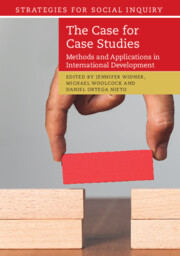Editors
Colin Elman, Maxwell School of Syracuse University
John Gerring, Boston University
James Mahoney, Northwestern University
Editorial Board
Bear Braumoeller, David Collier, Francesco Guala, Peter Hedström, Theodore Hopf, Uskali Maki, Rose McDermott, Charles Ragin, Theda Skocpol, Peter Spiegler, David Waldner, Lisa Wedeen, Christopher WinshipThis book series presents texts on a wide range of issues bearing upon the practice of social inquiry. Strategies are construed broadly to embrace the full spectrum of approaches to analysis, as well as relevant issues in philosophy of social science.

